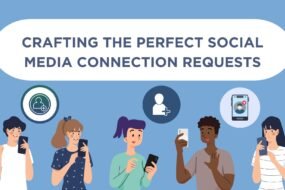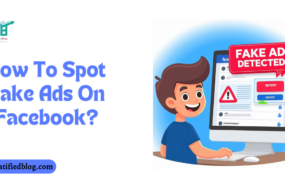
In today’s digital age, “How has social media changed marketing?” is more relevant than ever. Social media platforms have revolutionised how businesses connect with their audiences, shifting from traditional methods to dynamic, interactive strategies.
The marketing landscape has significantly transformed across platforms such as Facebook, Instagram, and Twitter, which boast billions of active users, as well as LinkedIn.
Understanding how social media has changed marketing is crucial for businesses looking to thrive in this ever-evolving environment. This blog delves into the significant influence of social media on marketing strategies, highlighting key trends that have emerged in this new era.
Let’s begin by exploring the emergence of social media
The Rise Of Social Media
The development and expansion of social media platforms dramatically transformed the marketing landscape. In the early 2000s, platforms like Facebook started as simple social networking sites but quickly became powerful marketing tools.
This shift marked a transition from Conventional marketing techniques like print advertisements and television commercials to digital marketing strategies that leverage social media’s interactive and wide-reaching capabilities.
Key platforms like Facebook, Twitter, Instagram, and LinkedIn have become indispensable for businesses seeking to target and engage with their target audiences. Facebook’s extensive user base and robust advertising tools are ideal for broad reach and engagement. Twitter’s real-time communication fosters immediate interactions and trend participation. Instagram’s visual-centric platform excels in brand storytelling and influencer collaborations, while LinkedIn provides a professional network ideal for B2B marketing.
Together, these platforms have redefined marketing, emphasising the importance of digital presence and engagement.
Now that you’re familiar with the ascent of social media let’s delve into how it has changed marketing.
How Has Social Media Changed Marketing?
Increased Customer Engagement
Social media has revolutionised customer engagement by facilitating direct and instantaneous interactions between brands and consumers. Unlike traditional marketing channels, social media allows for two-way communication, where customers can easily connect with brands, ask questions, share feedback, and participate in conversations. This direct interaction builds stronger relationships and fosters a sense of community and loyalty.
Comments, likes, shares, and direct messages foster engagement. Comments enable consumers to voice their opinions, ask questions, and receive prompt brand responses, creating a dialogue that can enhance customer satisfaction and trust. Likes serve as endorsements, signalling approval and interest increasing a brand’s visibility and credibility. Shares amplify content reach by allowing users to distribute brand messages within their networks, thereby expanding the audience organically. Direct messages offer a private channel for personalised interactions, addressing customer concerns, and providing tailored support.
These engagement mechanisms not only help brands understand their audience better but also enable them to create more relevant and impactful content. By leveraging social media’s interactive features, businesses can cultivate a loyal customer base, improve customer retention, and drive brand advocacy. Social media engagement is thus a cornerstone of modern marketing, emphasising the value of real-time, personalised communication.
Targeted Advertising
Thanks to advanced data analytics and algorithms, social media advertising offers unparalleled precision compared to traditional methods. Unlike traditional advertising, which often casts a wide net, social media platforms allow businesses to target specific demographics, interests, and behaviours and retarget previous website visitors. This level of targeting ensures that ads reach the most pertinent audience segments, thereby enhancing the likelihood of engagement and conversions.
Data analytics are crucial in understanding audience preferences and behaviour patterns, enabling businesses to create highly targeted ad campaigns. Algorithms further optimise ad delivery, ensuring that ads are shown to individuals most likely interested in the offerings. This enhances advertising effectiveness and maximises return on investment (ROI) by reducing ad spend on irrelevant audiences.
The benefits of targeted ads for businesses are numerous. They include cost-effectiveness, as targeting reduces ad wastage and improves ad performance metrics such as click-through and conversion rates. Additionally, targeted ads generate higher ROI by generating more qualified leads and driving sales from the right audience segments. Overall, targeted advertising on social media has become a cornerstone of modern marketing strategies, offering precision, efficiency, and measurable results.
Real-time Feedback and Adaptation
Social media provides businesses with an immediate feedback loop that is unmatched by traditional marketing channels. Customers can voice their opinions, offer feedback, and share experiences in real-time, allowing businesses to gather valuable insights instantly. This real-time feedback is instrumental in understanding customer preferences, identifying issues, and gauging sentiment towards products or services.
Businesses can adjust their strategies in response to real-time customer responses by leveraging the insights from social media interactions. For example, positive feedback can inform content creation and marketing campaigns, while negative feedback can prompt adjustments in product offerings or customer service processes. Real-time responses also enable businesses to address customer concerns promptly, enhancing customer satisfaction and loyalty.
Tools for monitoring social media sentiment, such as social listening platforms like Sprout Social, Hootsuite, and Brandwatch, allow businesses to track mentions, sentiment trends, and customer conversations across various social media channels. These tools provide analytics and actionable insights that empower businesses to make informed decisions based on data and optimise their marketing strategies in real time.
Now that you’re familiar with social media’s impact on marketing let’s explore and consider the challenges.
Challenges And Considerations
Social media marketing presents businesses with unique challenges that require careful navigation and strategic planning.
One major challenge is managing negative feedback, as social media amplifies praise and criticism. Businesses must develop robust strategies for addressing complaints and negative comments promptly and professionally to maintain brand reputation and customer trust.
Another challenge is maintaining brand consistency across various social media platforms. With multiple channels and content formats, businesses must consistently ensure cohesive messaging, visuals, and tone to reinforce brand identity and values.
Authenticity and transparency are paramount in social media marketing. Customers value honesty and genuine interactions, making it crucial for businesses to be transparent about their products, services, and practices.
To navigate these challenges effectively, businesses should prioritise active social listening to monitor conversations, address feedback promptly, and engage with customers authentically. Clear communication, consistent branding, and a focus on crafting authentic connections with the audience can aid businesses in overcoming social media marketing challenges and succeeding in the digital landscape.
FAQs
Q1. How has social media impacted traditional marketing methods?
A. Social media has shifted marketing from passive broadcasting to interactive engagement, transforming how businesses connect with their audiences.
Q2. What role does social media play in targeted advertising?
A. Social media enables precise audience targeting based on demographics, interests, and behaviours, enhancing the effectiveness and ROI of advertising campaigns.
Q3. How has influencer marketing evolved with the rise of social media?
A. Influencer marketing has flourished on social media platforms, leveraging influencers’ reach and authenticity to amplify brand awareness and drive consumer trust and engagement.
Conclusion
Having delved into social media’s transformation of marketing strategies, it’s clear that it has altered how businesses engage with their audiences and completely revolutionised the marketing landscape. In this digital era, success hinges on businesses harnessing social media’s potential while adeptly handling the obstacles it presents.
By integrating social media seamlessly into their marketing strategies and remaining adaptable to customer feedback, businesses can set themselves up for success and maintain a competitive edge in the continually evolving digital sphere.
However, if you still have any questions related to the blog, please feel free to leave them in the comment section below. We will be happy to answer them.
Thanks for reading 🙂








No Comments